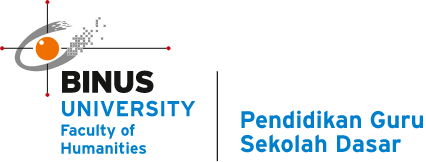The Importance of Teacher’s Role in Education and the Emergence of Artificial Intelligence
Artificial intelligence (AI) has become a topic of intense discussion and speculation in recent years, particularly in the field of education. With the rapid advancement of technology, the question of whether AI will replace teachers has become increasingly pressing. In this article, we will delve into the crucial role that teachers play in education, examine the current applications of AI in this field, and determine whether or not AI is destined to overtake human educators.
The Significance of Teachers
Classroom Instruction
Teachers have long been at the forefront of the educational experience, serving as the primary facilitators of learning. They are responsible for creating and implementing curricula, delivering lessons, and evaluating students’ progress. In addition to imparting knowledge, teachers also encourage critical thinking and facilitate discussions, thereby fostering problem-solving skills in students.
Emotional Intelligence Development
Moreover, teachers play a crucial role in the development of students’ emotional intelligence. They foster empathy, self-awareness, and social skills, helping students build strong relationships and navigate life’s complexities. This aspect of education is just as important as academic instruction, as it prepares students for success both inside and outside of the classroom.
Mentorship and Guidance
In many cases, teachers serve as mentors, offering guidance as students make important life decisions and providing support during trying times. This mentorship is a critical component of students’ personal and academic growth, as it helps students build resilience and develop important life skills.
The Emergence of Artificial Intelligence in Education
Adaptive Learning Systems
AI-powered adaptive learning systems have emerged as a promising tool in education, tracking students’ progress and tailoring the content, pace, and difficulty of material to meet individual needs, thereby providing a more personalized learning experience. These systems have the potential to revolutionize the way in which students learn, as they are designed to cater to each student’s unique strengths and weaknesses.
Automated Grading and Feedback
AI has also been utilized to automate grading and provide instantaneous feedback to students, freeing up teachers’ time and allowing them to focus on more complex tasks such as curriculum design and individual interactions with students. This application of AI has the potential to greatly improve the efficiency and scalability of the educational process.
Virtual Tutoring
AI-driven virtual tutoring systems are another exciting development in the field of education, providing personalized instruction, answering students’ questions, and offering guidance on challenging concepts. However, these systems still lack the emotional intelligence and human connection inherent in traditional teachers, and thus cannot fully replicate the educational experience provided by human educators.
Comparing AI and Teachers
Efficiency and Scalability
AI has the potential to be both more efficient and scalable than human teachers, as AI systems can serve an unlimited number of students simultaneously, whereas teachers are limited by the number of students they can effectively teach at one time. This aspect of AI has the potential to greatly improve the accessibility of education, making it more widely available to students around the world.
Customization
AI systems also excel in providing customized learning experiences tailored to each student’s needs, a level of personalization that is challenging for human teachers to achieve given the diversity of student needs in a single classroom. This aspect of AI has the potential to greatly improve the educational experience for students, as it is designed to meet each student’s unique strengths and weaknesses.
Human Connection
Despite the progress made in AI, human teachers remain unrivaled in their ability to form emotional connections, provide mentorship, and develop students’ emotional intelligence. The human qualities that make teachers so invaluable in the educational process cannot be replicated by AI systems, and thus the role of human educators remains vital. The personal connection and guidance that teachers provide is a critical aspect of the educational experience, and cannot be replaced by technology.
The Future of AI in Education
Blended Learning
While AI holds great potential in education, it is unlikely to completely replace teachers. Rather, the future of education is likely to involve a blended learning approach, where AI and human teachers work together to provide a more comprehensive and effective learning experience. This collaboration could allow teachers to focus on higher-level tasks, such as fostering meaningful human connections with students, while AI systems handle more routine or repetitive tasks. This blend of technology and human interaction has the potential to greatly enhance the educational experience for students.
Continuous Development
As AI technology continues to evolve, it is expected to play an increasingly significant role in education. However, it is important to ensure that the development of AI in education is guided by the needs of both students and teachers, so that the technology serves as a supportive tool rather than a replacement. The integration of AI into the educational landscape must be done thoughtfully and with consideration for the ethical implications, such as data privacy, algorithmic bias, and the potential for AI systems to make mistakes.
Ethical Considerations
The increasing use of AI in education raises important ethical concerns, such as the protection of student data, the potential for algorithmic bias, and the risk of AI systems making mistakes. Ensuring that AI-driven systems are transparent, fair, and accountable is crucial for their successful integration into the educational landscape, as it is essential to protect the privacy and well-being of students.
In conclusion, while AI has the potential to revolutionize education and address some of the challenges facing the sector, it is unlikely to completely replace teachers. The unique human qualities that teachers bring to the educational process, such as emotional intelligence, mentorship, and human connection, remain irreplaceable. Instead, the future of education is likely to involve a blended learning approach, with AI and human teachers working together to create a more impactful and engaging learning experience. It is important to continuously evaluate the use of AI in education and ensure that it is guided by ethical considerations and serves as a supportive tool for teachers and students alike.
